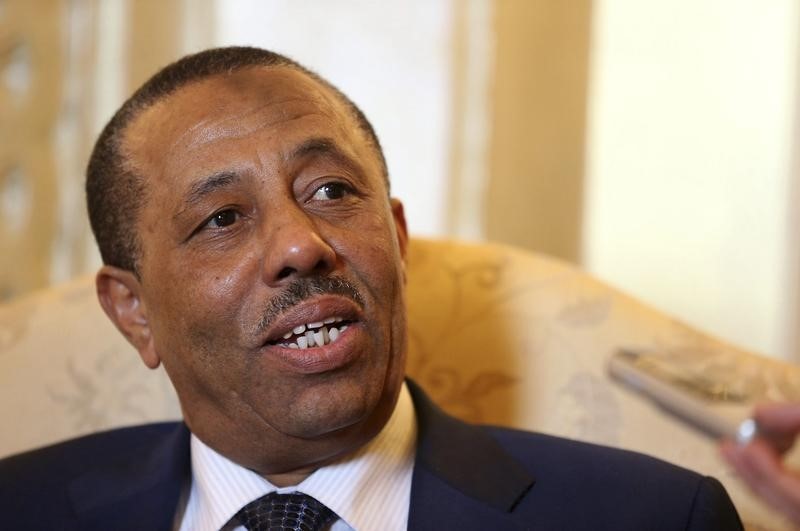By Ulf Laessing
TRIPOLI (Reuters) - Libya's recognized government wants to control the country's oil revenues by stopping any payments through Tripoli bank accounts out of its reach, its prime minister said on Wednesday.
The OPEC oil producer has had two governments, parliaments and armies since August when a group called Libya Dawn seized Tripoli, forcing the recognized Prime Minister Abdullah al-Thinni and his government to move to the east of the country.
Nearly 50 people have been killed in the past 10 days in fighting between pro-government forces and Islamist groups in Libya's second-largest city, Benghazi, medical personnel said on Wednesday.
The central bank, which books oil revenues, has sought to stay out of the conflict, but both sides have appointed competing officials to run the vital oil sector as well as the state National Oil Corp (NOC).
In an attempt to corral the country's oil revenues, Thinni said his government would set up an alternative payment system that bypasses Tripoli.
"In order to control (the oil revenues) and change the (payment) system, we need to set up (a new system) in coordination with banks and NOC which will take some weeks," Thinni told Dubai-based TV channel al-Arabiya.
"Central accounts existing in Tripoli will be closed," Thinni told Dubai-based TV channel al-Arabiya.
The question of who owns Libya's oil reserves is key for foreign buyers, mainly from Europe and China. For decades, they have paid for Libyan crude through a state bank linked to the central bank in Tripoli.
The central bank is currently keeping oil revenues in its coffers with the exception of salaries of civil servants and food subsidies, in an attempt to stay out of the fray.

But a portion of those salaries still filters to supporters on both sides as many are employed by the state.
(Reporting by Ahmed Tolba and Ulf Laessing; editing by G Crosse)